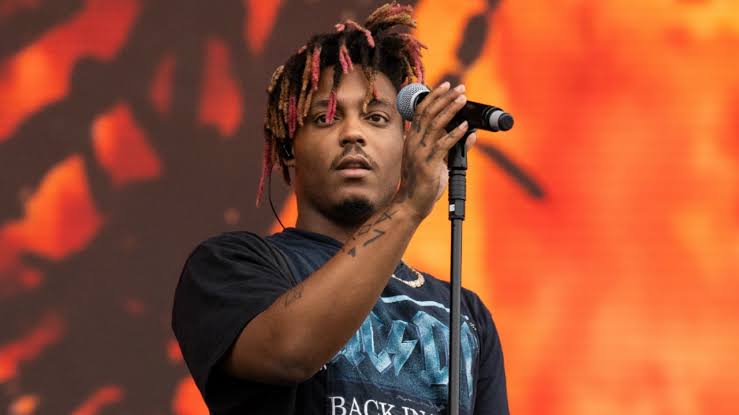Juice Wrld was a prominent American rapper.
Over his four-year career, he became a key figure in the emo rap and SoundCloud rap scenes, gaining significant mainstream recognition in the mid-to-late 2010s. He derived his stage name, which symbolized “taking over the world,” from the movie “Juice” (1992).
Early life and Education 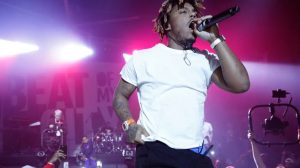
Jarad Anthony Higgins, born on December 2, 1998, in Chicago, Illinois, spent his early years in Calumet Park before relocating to Homewood. He attended Homewood-Flossmoor High School, graduating in 2017. Raised by his mother after his parents’ divorce when he was three, Higgins’ upbringing was influenced by his mother’s religious and conservative beliefs, which restricted his exposure to hip hop music. Instead, he discovered artists like Billy Idol, Blink-182, and others through video games. Despite his challenging upbringing, Higgins found solace in music, learning to play multiple instruments and posting songs on SoundCloud during high school. However, his struggles with substance abuse, starting from a young age, cast a shadow over his adolescence, with him being a heavy drug user throughout his childhood and teens.
Career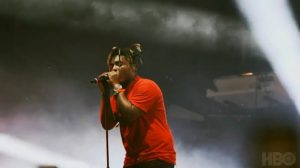
Juice Wrld’s career took off when he began posting songs on SoundCloud during his high school years. His talent and unique style quickly garnered attention, leading to a significant following on the platform. As he gained popularity, he started taking his rapping more seriously and began collaborating with other artists.
In 2018, Juice Wrld released his debut single “All Girls Are the Same,” which gained widespread acclaim and marked the beginning of his rise to stardom. The following year, he released his debut studio album, “Goodbye & Good Riddance,” which included his breakthrough hit “Lucid Dreams.” The song peaked at number two on the Billboard Hot 100 chart and propelled Juice Wrld to international fame.
Throughout his career, Juice Wrld continued to release successful music, including collaborations with artists like Future and Benny Blanco. His second studio album, “Death Race for Love,” debuted at number one on the Billboard 200 chart in 2019.
In addition to his popular hits, Juice Wrld’s career was marked by numerous collaborations with other artists, further expanding his influence in the music industry. He collaborated with a wide range of musicians across various genres, showcasing his versatility as an artist.
One notable collaboration was with rapper Future on the mixtape “Wrld on Drugs” in 2018, which featured tracks like “Fine China” and “Jet Lag.” The project received positive reviews and demonstrated Juice Wrld’s ability to work effectively with established artists.
Furthermore, Juice Wrld’s music was frequently featured in popular media, including movies, television shows, and video games. His songs were often used to enhance the emotional impact of scenes and to connect with audiences on a deeper level.
Beyond his musical contributions, Juice Wrld was known for his energetic live performances and his connection with fans. He toured extensively, performing at major music festivals and headlining his own concerts around the world.
Personal life 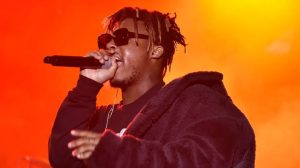
Juice Wrld’s struggles with drug abuse began early in his life, and he was candid about his experiences with addiction. His mother mentioned that he also faced challenges with anxiety and depression alongside his battle with substance abuse. In an effort to address his addiction, Juice Wrld had agreed to attend drug rehabilitation prior to his untimely death.
At the time of his passing, Juice Wrld was residing in Los Angeles with his girlfriend, Ally Lotti. The couple had publicly revealed their relationship on Instagram in November 2018, sharing glimpses of their bond with their followers.
Death
Juice Wrld tragically passed away on December 8, 2019, at the age of 21. He suffered a medical emergency at Chicago’s Midway International Airport shortly after arriving on a flight from Los Angeles. Despite immediate medical attention, he was pronounced dead at a nearby hospital.
The cause of Juice Wrld’s death was later determined to be an accidental overdose of oxycodone and codeine, commonly found in the opioid-based cough syrup known as lean. His sudden and unexpected death sent shockwaves through the music industry and left fans around the world mourning the loss of a talented young artist.
In the wake of his passing, tributes poured in from fellow musicians, fans, and admirers, highlighting Juice Wrld’s impact on the music community and his lasting legacy as an artist. His death served as a stark reminder of the dangers of substance abuse and sparked conversations about mental health and addiction within the industry.
Legacy 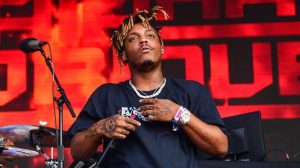
Juice Wrld’s legacy is profound and multifaceted, encompassing his musical influence, his candid exploration of mental health and substance abuse, and his impact on his fans and peers alike.
Musically, Juice Wrld revolutionized the rap genre with his melodic style, blending elements of emo and SoundCloud rap to create a distinct sound that resonated with a diverse audience. His ability to infuse raw emotion into his lyrics, coupled with his impressive freestyling skills, set him apart as a truly innovative artist. Hits like “Lucid Dreams” and “All Girls Are the Same” solidified his place in music history and inspired a new generation of musicians.
Beyond his musical contributions, Juice Wrld’s openness about his struggles with mental health and substance abuse sparked important conversations and helped break the stigma surrounding these issues. By sharing his own experiences, he encouraged others to seek help and support, fostering a sense of community and understanding among his fans.
Juice Wrld’s untimely death served as a wake-up call for the music industry, prompting discussions about the pressures faced by young artists and the need for better support systems. His passing also underscored the devastating impact of addiction and highlighted the importance of mental health awareness and intervention.
Despite his brief time in the spotlight, Juice Wrld’s legacy endures through his music, his advocacy, and the lives he touched. He remains a beloved figure in the rap community, remembered not only for his talent and creativity but also for his authenticity and compassion.
Net Worth before his death
Estimated to be over 3 million dollars


